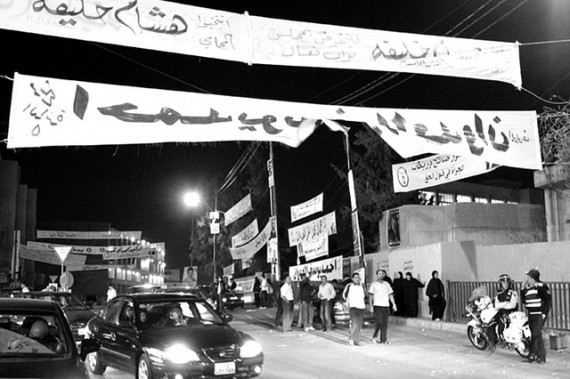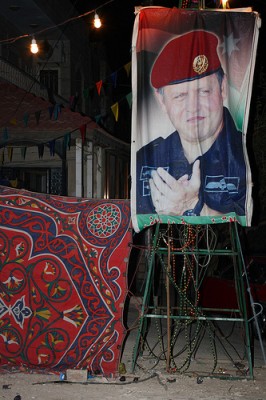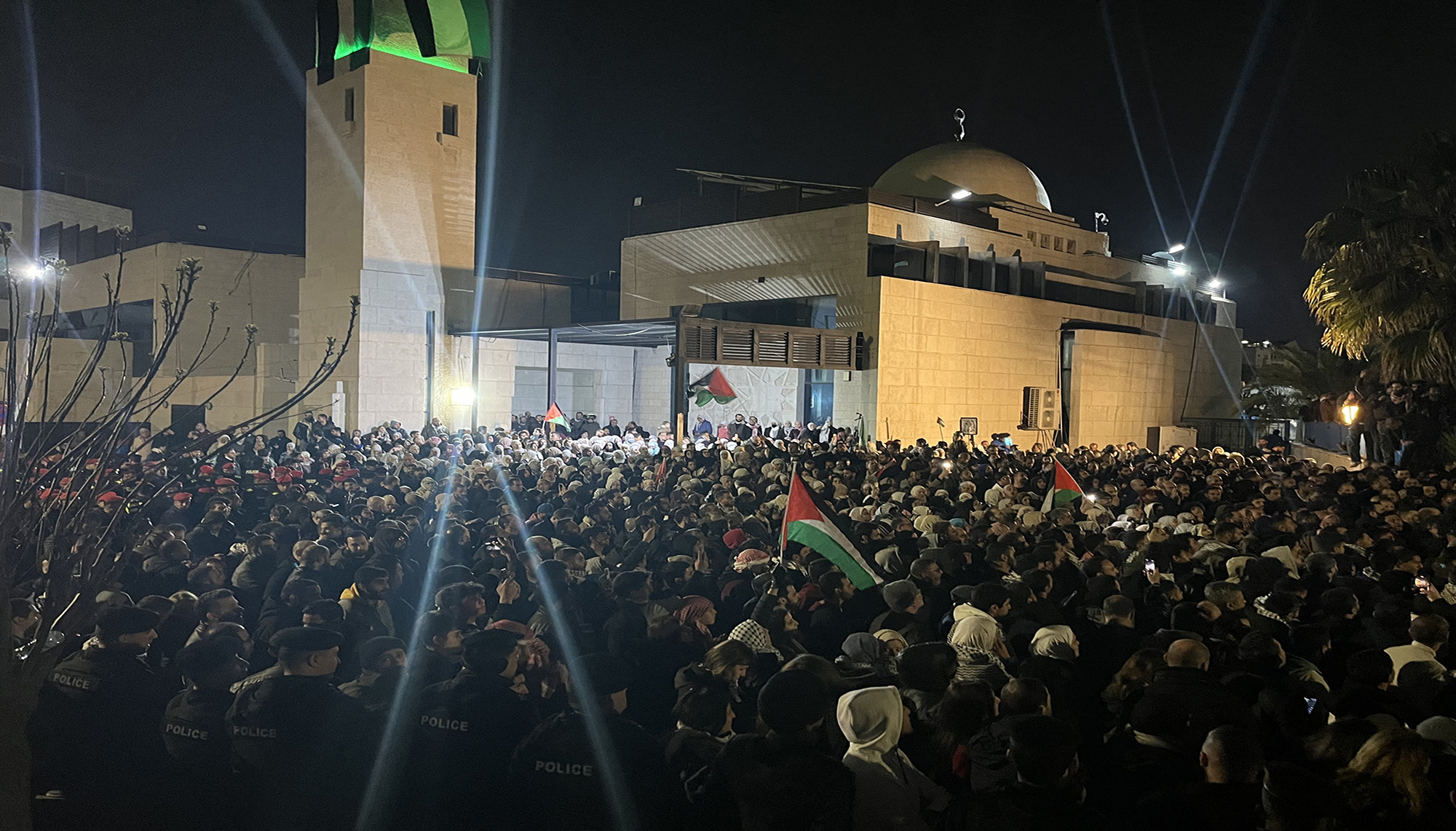By David Fox
In the era of the Arab Spring, many wonder how the Hashemite Kingdom of Jordan has managed to weather the storm of regional unrest with such apparent ease. The answer to this question in part lies in the construction of the country’s parliamentary system, which on the surface gives the kingdom the veneer of a semi-democratic state. Upon closer examination though, the Parliament can be seen a mere pressure release valve for the regime and source of political distraction for the general population. It is designed to fail as a legislative body, and the recent streak of parliamentary absurdities prove that it is performing exactly according to design.
Built-in Weaknesses
When the Parliament was re-instituted by King Hussein following social unrest in 1989, voters were allowed to cast one vote for each seat in their voting district. When Islamist candidates performed well and regime loyalists faired poorly, King Hussein acted decisively to tilt the system in his favor. Therefore in the next elections in 1993, the voting system was changed to a ‘one person, one vote’ system, known in academic terms as the standard non-transferable vote, or SNTV. To provide some perspective, the SNTV system is only used by three other countries in the world: Afghanistan, Thailand, and Indonesia.
With the SNTV voting system King Hussein expected that a large number of voters would feel compelled to use their single vote for a member of their extended family or tribe, regardless of his or her views, rather than on a candidate from a political party. In a social environment where family is everything and tribal affiliations are strong, independent candidates nominated through a patriarchic tribal vetting system have triumphed over organized parties, especially the most established and well-organized, the Muslim Brotherhood’s Islamic Action Front (IAF) party. This has meant that independent candidates who may have few qualifications or any semblance of a political platform (outside of pledges to provide services for their key local constituencies) dominate in the Parliament at the expense of parties that have more detailed national agendas.
Another political stumbling block in the electoral system is the disproportionate allocation of electoral seats to East Bank, tribal communities, rather than using demographic proportionality as the basis for seat allocation. This enhances the negative effect of the above-described SNTV system, as the political effect of tribal affiliations are stronger outside of urban settings. Using 2008 population figures and the electoral seat distribution in the 2010 Lower House elections, we can see that the disparity in representation among Jordan’s 12 governorates is enormous; the most represented governorate, Tafileh, has one representative per 16 thousand residents, while the least represented governorate, the capital governorate of Amman, has one MP per 83 thousand residents. Jordan’s other two governorates dominated by urban centers, Zarqa and Irbid, have the 2nd and 3rd least representation, approximately 73 thousand and 58 thousand residents for each MP, respectively. The average amount of the representation for the remaining nine rural governorates is 27 thousand residents per MP.
Several other features of the electoral system contribute to making it a regressive, unrepresentative body, including – paradoxically – the women’s quota. Each governorate is allotted a quota of one woman for a parliamentary seat. In the rural governorates, these women are vetted through male-dominated tribal patriarchies, with female candidates expected to take the ‘tribal line’ on issues, including support for honor crimes and other forms of institutionalized gender discrimination. If we consider the women elected to parliament as the voice for women in their respective governorates, than the modern, socially and economically empowered women of Amman face severe discrimination in comparison to women from the rural governorates. The women of Amman are, for example 27 times less represented in Parliament than Jordan’s least populated governorate, Tafileh.
The Result: Political Theater
When the Parliament or individual MPs make news in Jordan, it’s never for anything positive. During the tenure of the current 16th Parliament, the stories have ranged from absurd to criminal. Most recently, Madaba MP Muhammad Shawabka pulled a gun on a political critic on a live television broadcast. An MP from Amman, Yahya Saud, has assaulted or attempted to assault fellow parliamentarians on multiple occasions on the floor of the Parliament (and elsewhere), while also inciting a mob that destroyed the Jordan office of Agence France-Press. Neither one has faced criminal prosecution, indicating that their behavior is, at the very least, passively sanctioned by the regime.
The Parliament’s two most notable legislative achievements have been the passage of a bill awarding parliamentarians lifetime pensions (regardless of the amount of time in service) and a bill giving each member a temporary diplomatic passport. Earlier parliaments have voted to uphold internationally embarrassing laws that provide lenient sentences for so called honor crimes against women, clemency for rapists who marry their victims, and gender-discriminatory nationality laws. It is rare to find a Jordanian who has anything positive to say about the 16th Parliament, and there have been public calls for its dissolution.
The Need for Comprehensive Reform
Why all the obstacles to parliamentary reform then? Why not throw out the SNTV election system in favor of multiple votes in each electoral district, with the goal of building viable political parties? Why not give the more progressive, cosmopolitan urban centers the number of representatives that, by population size, they are entitled to?
At the foundation of the problem is the ugliness of Jordanian zero-sum politics; East Bank Jordanian leaders fear urban Palestinian communities gaining more representation in Parliament, despite the fact that such a shift would better be described as a move towards political equality rather than “taking away” power from the East Bankers. The “native” Jordanians also join the monarchy in their wariness towards Islamist party politics, seen as a potential source of instability, a challenge to the status quo, and dominated by Palestinians (and thus to be doubly feared).
In short, the current status quo can best be described as a giant game of tug-of-war; groups battle for a larger share of the parliamentary pie, sometimes winning additional seats here and there, sometimes losing them, but ultimately destined not to make any progress. Gains (or losses) for all of the stakeholders are measured in inches, when in fact the system as a whole needs to move miles to be an effective legislative body.
A push by the monarchy to institute fair election laws based on clear, unbiased districting and proportional representation would be incredibly risky, as would the abandonment of the SNTV voting system. Conventional wisdom would predict East Bank hostility to such change, but not all East Bank Jordanians are buying into the old zero-sum mentality.
Some of the most vocal voices for political reform have been youth groups from East Bank backgrounds. There is a growing recognition that despite their over-representation in the parliamentary system, they have been failed nonetheless; inept MPs have brought nothing but stagnant social and economic development in Jordan’s rural governorates, and the youth have recognized that the status quo is not working in their favor.
While political wrangling on reforming the election law is an almost reassuring constant, ultimately the buck stops with King Abdullah II. The flawed electoral system created by the father can only be reformed unilaterally by the son, who still holds on tightly to the levers of power. But then again, why would the King make the much-needed reforms, when all the parliamentary commotion makes for such a marvelous distraction?












